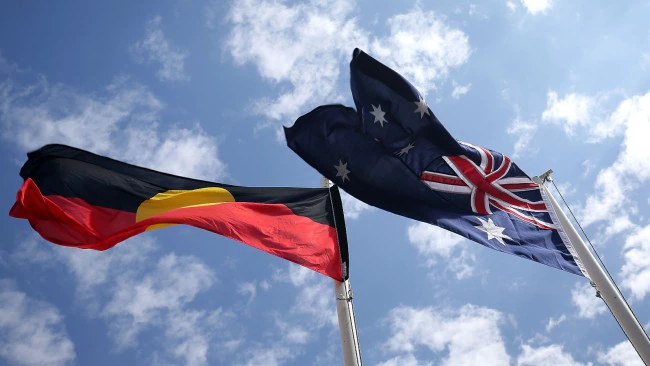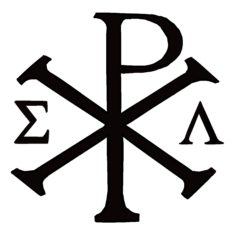
Australia Day, the 26th of January, is a controversial date but the reason behind the celebration isn’t what a lot of people think.
Australia Day is not celebrating or being celebrated on the date of the landing of Captain Cook, or the arrival of the first fleet. Captain Cook landed in Botany Bay on the 28th of April 1770. The first fleet arrived in Botany Bay on the 18th of January 1788 and when that was deemed an unsuitable settlement site, they relocated to Sydney Cove on the 29th of January.
The 26th of January is the day Australia’s Nationality and Citizenship Act came into force in 1949, which included all Australians, both Indigenous and non-Indigenous. This was the beginning of Australia as we know it today, and I will go into that in depth shortly, but first, we need to dig into some Australian history. And while I do not condone or excuse any violence towards the Indigenous people, we cannot cancel and ignore history. Allow me to expand on it:
The early British governments treated so many cultures in abhorrent ways; Indians were looked down upon by the British and Indian culture was treated as inferior to European culture, British settlers who came to Kenya because of its resources and comfortable climate forced Indigenous farmers and herders onto infertile land or made them work on European-owned farms and plantations, the Native Americans were forced to give up their lands so the colonists could grow even more tobacco, and I haven’t even touched on the treatment of Indigenous Australians yet, this is just other cultures. In Australia, the English settlers expropriated native land and removed the indigenous people by cutting them from their food resources, and engaged in genocidal massacres, earlier government policies had relocated Aboriginal people from their homelands to reserves, known as stations or missions. The assimilation policy aimed at breaking up these reserves and ‘encouraging’ people to give up seasonal and casual work, replacing this with regular work for wages (which remained unequal). For decades, as many as 1 in 3 Indigenous children were forcibly removed from their families nationwide, according to a later report commissioned by the Australian government. Come WWI and WWII, the repression of Indigenous Australians increased between the wars, as protection acts gave government officials greater control over Indigenous Australians. As late as 1928, Indigenous Australians were being massacred in reprisal raids. Most Indigenous Australians could not vote and none were counted in the census, even though Aboriginal and Torres Strait Islander Australians have fought for Australia in every war since Federation in 1901. Indigenous Australians in World War I served on equal terms but after the war were not in areas such as education, employment, and civil liberties. Aboriginal ex-servicemen and women found that discrimination remained or, rather, had worsened during the war period. Upon returning from World War I, many Aboriginal and Torres Strait Islander soldiers were denied land under the Returned Servicemen’s Settlement Scheme, despite having fought alongside non-Indigenous servicemen. Indigenous Australians were able to enlist in the onset of WW2 and many did, however, as in WW1, it was not until Australian troops where inundated that Indigenous people where encouraged and or wanted to fight along side white Australian troops. And again, despite having fought alongside one another, Indigenous Australians came back to much the same discrimination as before. This was such horrific and disgraceful discrimination.
After the horrors of WWII, Australia tried to fix it, and we became our own people. On the 26th of January 1949, the Australian Nationality and Citizenship Act 1948 was enacted. That was the day that we, both Indigenous and non-Indigenous peoples, were first called ‘Australians’. Before that date, the 26th of January 1949, all people living in Australia were called ‘British subjects’ and forced to travel on British passports and fight in British wars. On that date, Australia BECAME Australia, we as a nation became ONE. Australia became free to make its own decisions on how it would operate, what wars it would fight, and how it’s citizens would be treated. It was the day that we became Australians.
Until this date, Indigenous Australians were not protected by the law, and this new Act gave them the full protection of Australian Law. This was the start of inclusion, and this is why new citizens receive their citizenship on this date.
Now, to follow all of that up, I want to talk about the cry that has been going on for a long time about changing the date of Australia Day. While the 26th of January means a day of freedom, celebration, and Aussie culture to me and to many other Australians, I see and understand that it represents a dark day in history for Indigenous Australians. It represents the day oppression began for them, and by no means do I want to belittle that. The small amount of history I shared above shows just a shadow of the horrific ways Indigenous people were treated, and it wasn’t right, and I am sorry from the bottom of my heart that it happened. I truly hope that one day we can have reconciliation between Indigenous and non-Indigenous Australians.
For my whole life, I was insisting that Australia Day ought to be celebrated on the 26th of January, and that changing the date was a terrible idea. Don’t ask me why or to defend that, it’s just what I was adamant on, and I am stubborn! After doing all the research for this post, I understand two things a whole lot better than I did:
1) Why Australia Day is celebrated on the 26th of January, and
2) Why it hurts Indigenous people that we celebrate it on that day.
I was always aware of our history, but I had never dug quite so deeply (and open-mindedly) until now, and I tell you, my heart hurt. It was filled with sadness for the way people were treated by the corrupt early British government, and it was torn between what I have always felt towards the celebration of Australia Day and what I can now see.
I had a short conversation with someone a couple of days ago about the idea of ‘changing the date’, and that got me thinking about it very seriously. Then an extended conversation with a friend and a whole lot of research today really opened my eyes. If a celebration that means freedom to me means pain to someone else, and we want to close the gap between us, why not change it? How good would it be to choose a date that means freedom of being an Australian to everyone?
Following my research of the treatment of Indigenous Australians pre the enactment of Australian Nationality and Citizenship Act 1948, I also read about how they were treated following that. Sure, they had basic rights and protection and citizenship, but they didn’t have some of the key privileges of citizenship. Before 1967, Aborigines were excluded from the rights of Australian citizenship, including the right to vote [this is debated so don’t pull me up on it, I’m aware that Aboriginal voting rights date back to the 1850s and since then various state and federal legislation has included and supported Aboriginal franchise. Naturally, owing to a number of significant socio-political factors (including social exclusion and discrimination, education standards, general ignorance of and misinformation about the political system, as well as the ‘tyranny of distance’ affecting access to voting processes), many Aboriginal people either chose not to vote or were unaware of their eligibility to vote. However, Aboriginal franchise was clearly not part of the constitutional reform of the 1967 referendum. You can read about that in Russel Taylor’s article], the right to be counted in a census and the right to be counted as part of an electorate, nor were they were subject to Commonwealth laws and benefits.
In a nutshell, the 1967 referendum was a significant act in bringing equality between Indigenous and non-Indigenous Australians, with the ‘yes’ vote being submitted by 90.77% of Australians. It’s things like this that help us to ‘close the gap’ and bring us closer to reconciliation. If we had to choose a new day to celebrate Australia Day, I would personally choose the 27th of May, in celebration of the referendum, the first step of freedom and new beginnings.
We shouldn’t want our children to grow up with bitterness and resentment in their hearts from our history. We want our children to grow up with love in their hearts, and they need to learn about the history and why it happened, so that such things may never be repeated. I pray for, and look towards, reconciliation.
If anyone wants to discuss any of these things further, please do reach out to me, I’m always willing to have a conversation, controversial or not! I have learnt so much from this, and I hope it has been informative for you too. Here’s to going through 2023 with an open heart and an open mind.
Julie xo

fl2wkb
b3ytxk